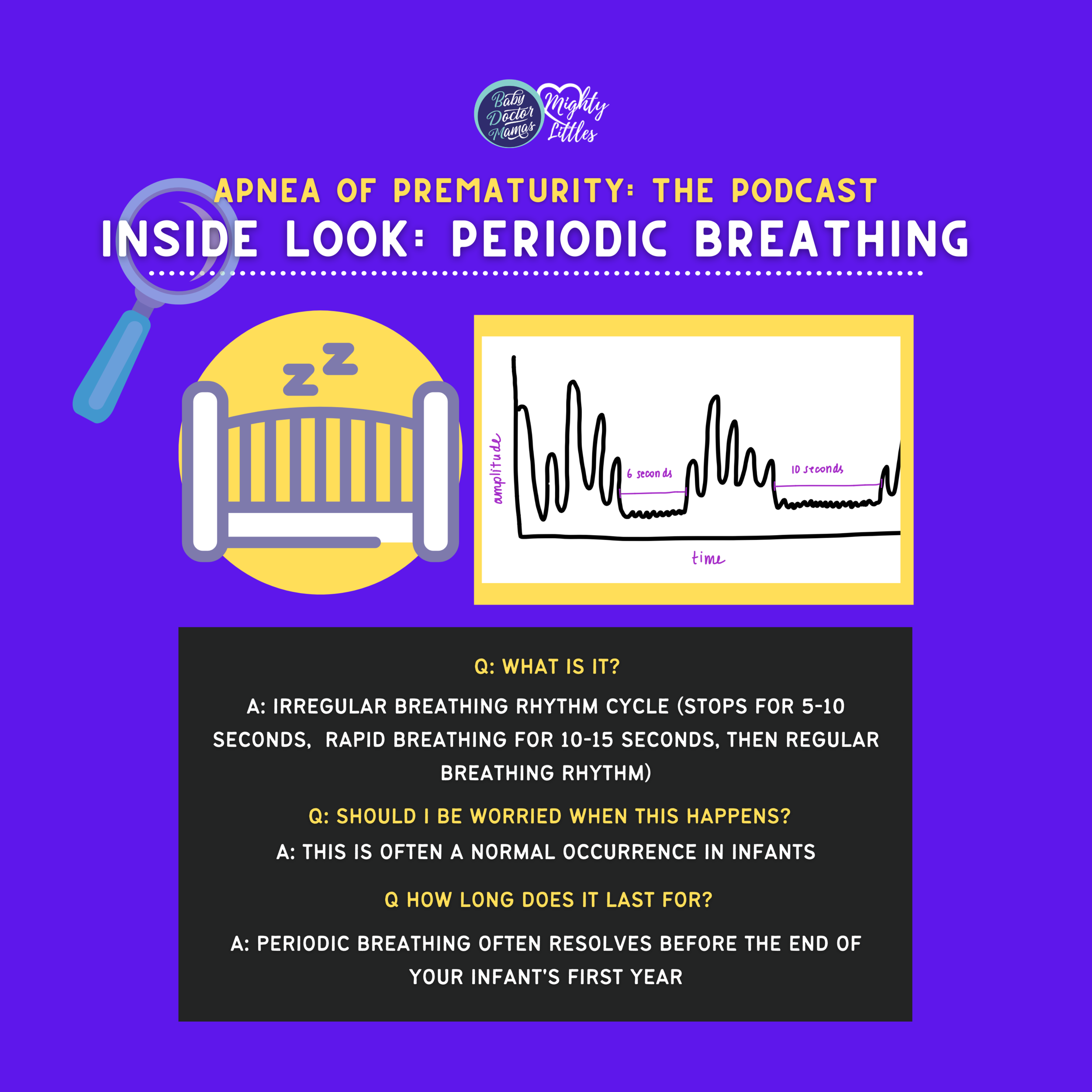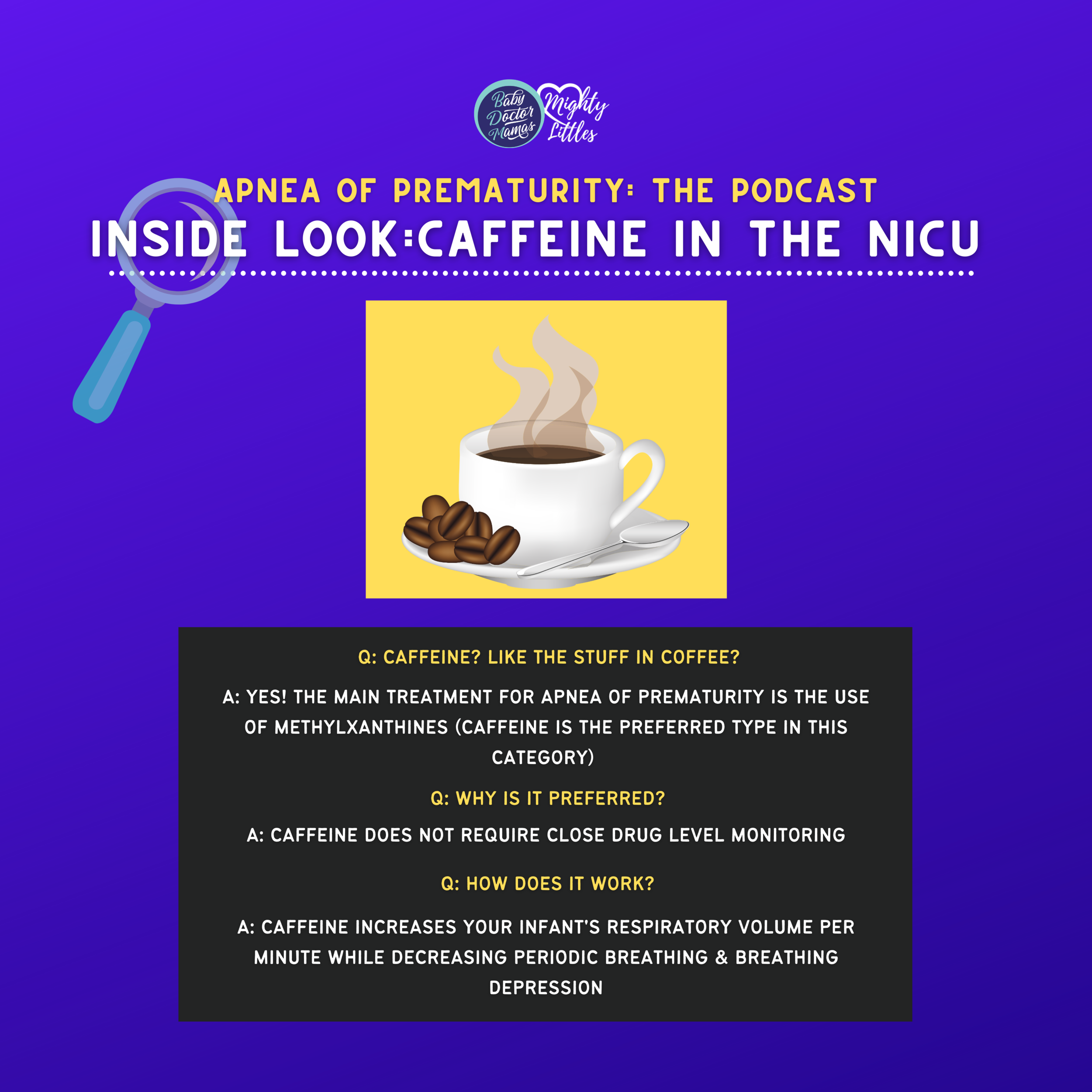Episode 31: Apnea of Prematurity
Dr. Joanna Parga-Belinkie joins Mighty Littles and Dr. Anna Zimmermann to talk about apnea of prematurity.
All babies born less than 28 weeks, many babies less than 32 weeks and some babies over 32 weeks will have apnea of prematurity. Apnea of prematurity is defined as pauses in breathing lasting 20 seconds or more and associated with heart rate or oxygen saturation changes.
All infants admitted to the NICU are placed on monitors that measure their heart rate, respiratory rate, and oxygen saturations. We know that babies have a typical patter of breathing called periodic breathing and that premature infant can have longer pauses in breathing that lead to apnea.
We typically treat apnea of prematurity with Caffeine, monitoring, providing gentle to moderate stimulation when needed, and a tincture of time. Our biggest takeaways for you:
Apnea of Prematurity is a normal occurrence in the NICU. It is something that all parents preemies are encountering and worrying about.
Time is your friend. As hard as it is to worry about apnea and desaturations and bradycardia events, preemies grow out of it. Caffeine helps lessen the events, but ultimately, time is what helps because babies mature and ultimately grow out of their “events”.
Primary nursing is super helpful. As nurses learn your individual baby’s specific patters, they can better assess and respond to your infant. Some preemies have minimal events. Some preemies have more. And each baby’s baseline will be different. Having nurses that know your baby’s baseline is immensely helpful.




